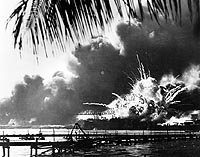Understanding Old Testament Prophesy
Joel 2:28-32
In order to understand the prophetic prediction of Joel 2:28-32 and it’s correlating fulfillment in Acts 2:14-21 in view of multiple referents, one must first understand the determinative meaning of each individual passage. In the book of Joel God is speaking through the prophet to warn the people that the locust plague that ravaged the land was a warning of greater judgement that was immanent in the Day of the Lord unless the people repented and returned to a full reliant fellowship with God.
Joel was probably one of the earliest of the minor prophets. Joel was a prophet in the Southern Kingdom of Judah during the reign of Uzziah. These were days of unparalleled prosperity in both Judah, and Israel. Joel’s message from the Lord was that the locust plague in Judah that ruined crops, destroyed the economy, and threatened the continuance of the sacrificial offerings was only a warning of the impending judgement on the Day of the Lord.
In these terrible circumstances Joel saw the Judgement of the Lord. The people of Judah had taken for granted the blessing given during the reign of Uzziah. Because of this complacency their faith had degenerated, and their lives fell into moral decadence. God imparted, through Joel, the message of reliance upon His sufficiency, and upon His prior covenant promises. And with the thought of further judgement Joel was led to reveal God’s intentions for the eschatological times.
Throughout the book of Joel the basic tenet is that God is sovereignly guiding the affairs of earth’s history toward His preconceived final goal. In chapter 2 verses 28-32 God is directly speaking to His people. This particular block of verses is a tightly written, self-contained unit within the book of Joel, and in fact in the Hebrew Bible these verses form a separate chapter. Verse 28 begins with the phrase "It will come about after this.” This places the following events after those that are detailed in the verses preceding them. This particular prophetic prediction occurs after the judgement of the locusts, and after the promise of deliverance. In these verses we see the prediction of the fullness of the coming of the divine kingdom on Earth. Here Joel pictures a time when God will “pour out [His] Spirit on all mankind.” However, the central concern of this passage is God’s actions toward His people in Judah because they were the original recipients of this revelation. Although God may chastise His people He “has reserved a remnant to Himself. On them he will pour out his Spirit, [and] to them he will manifest himself with marvelous signs.” This prophetic prediction was expanded by God beyond Judah to include all of mankind, but in this expansion Judah is not excluded.
A key to understanding Joel’s prophecy is understanding the term “Day of the Lord.” Many times this concept refers to a time of immediate judgement, whereas in other passages it refers to God’s eschatological judgement at the end of the age. The Day of the Lord includes three aspects: God’s judgement on unbelievers, the cleansing and purging of God’s people, and the salvation of God’s people. Through the revelation of God Joel used a locust plague of his day to warn people of the Day of the Lord.










